The fight by Russian dissidents against Vladimir Putin and his war in Ukraine
Nearly 20,000 Russians have been arrested for anti-war messages since Russia’s invasion began two years ago, according to human rights groups
Evgenia Kara-Murza woke up and immediately picked up her phone. Ukrainian women, she saw, had started sharing screenshots online of their last messages to their husbands, boyfriends and brothers on the front lines.
They began with a trivial message, something like “How are you, honey?” But with each unanswered message, they grew more panicked. “Honey, just write back. Just write anything. I just want to know that you are OK” one said.
By then, these women knew what had happened. They knew they would not get a response. They knew their partners, their siblings, had been killed by Russian soldiers.
Reading through these messages, Evgenia began to break down. She felt like she was about to have another panic attack.
They reminded her of the last message she sent to her husband, nearly two years earlier.
It was 11 April 2022. Vladimir Kara-Murza had just been arrested by Russian authorities near the family’s home in Moscow for “spreading false information” about the war in Ukraine.
The opposition figure’s phone had been confiscated. He would later be sentenced to 25 years in prison, with treason charges being added. The sentence was condemned by leaders around the world as being politically motivated, with Mr Kara-Murza a victim of a regime of repression. It was the longest punishment handed to any critic of Vladimir Putin since the full-scale invasion of Ukraine in February 2022.
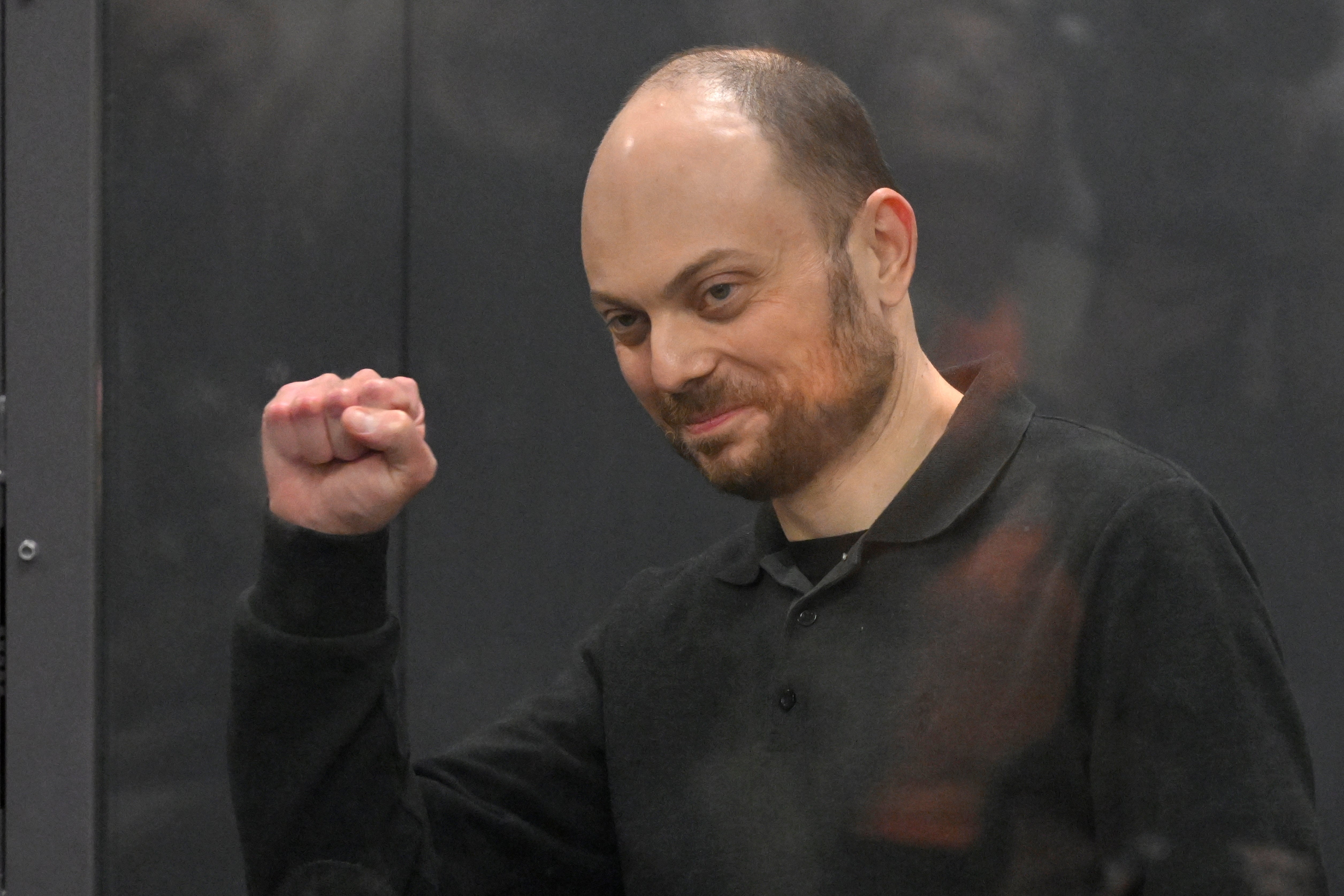
Ms Kara-Murza, now living in exile in the US, has not seen him since.
“I love you,” the text read, with a love heart emoji attached to the end of the message. It, too, was never answered.
Two years on from Vladimir Putin’s invasion of Ukraine, the Russian dissident community is fighting its own war. Thousands have been forced out of the country; many who stayed have been arrested; nearly a thousand are known to have been jailed for simply opposing Putin and his war.
And last Friday, Alexei Navalny, Putin’s most prominent critic, was announced as having died in the “Polar Wolf” Arctic Circle penal colony where he was serving a 19-year sentence, one of several sentences, on charges decried by the West as trumped up to silence him. His wife, Yulia Navalnaya, has accused Putin of having him poisoned. Nations like the UK and US have issued sanctions over Mr Navalny’s killing, saying Putin is ultimately responsible.
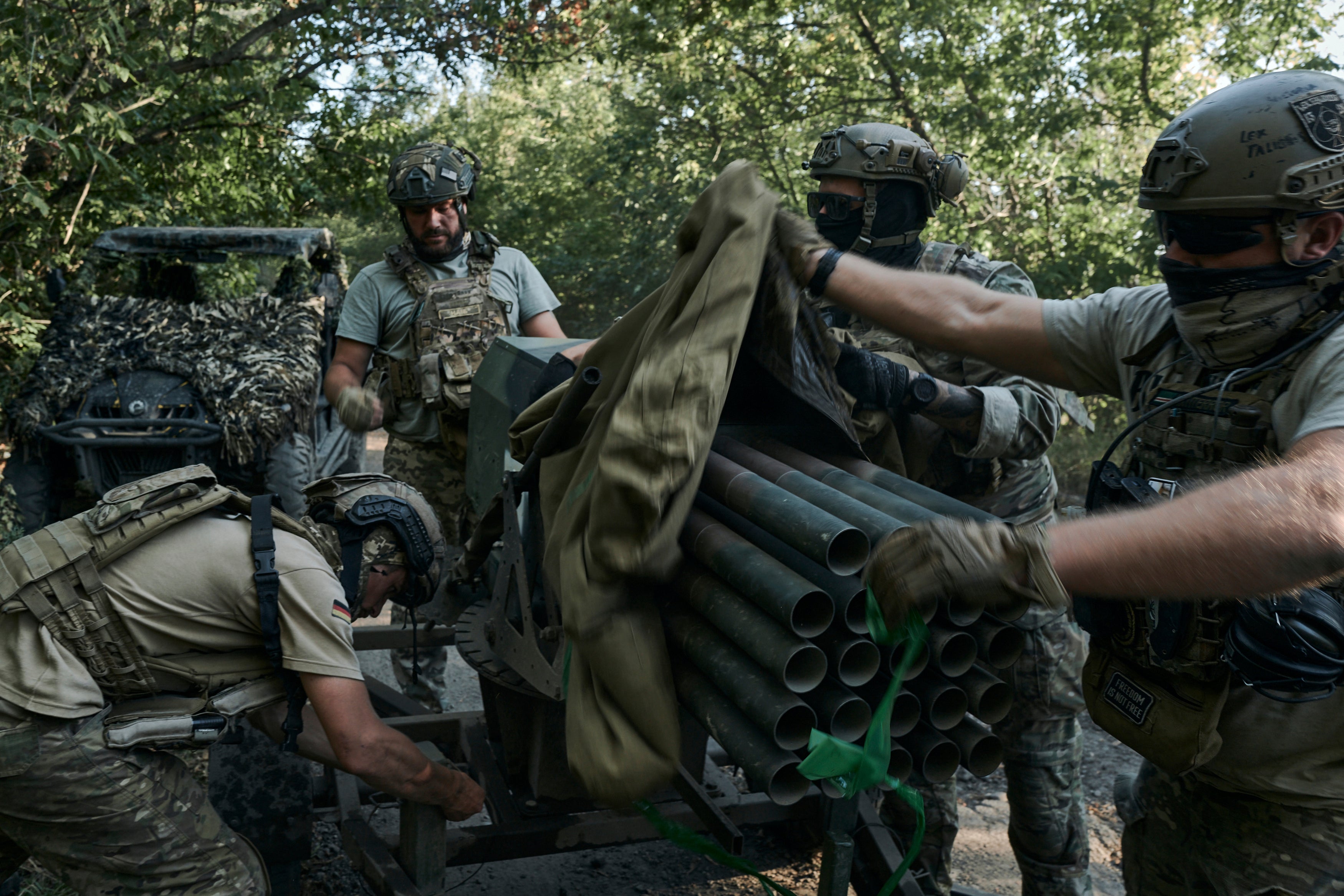
It left the Russian dissident community in shock. But the brutal repression of dissent, typified by the death of Navalny, has brought the rise of a new wave of opposition, many of whom are women, and they are finding new ways to fight against the Kremlin.
Evgenia Kara-Murza never planned to be an activist. She studied in Moscow in the late 1990s and early 2000s to be a translator, just as Vladimir Putin was quietly but quickly ascending to power.
But the imprisonment of her husband left her with no choice. The pain over the past two years, she said, has been numbing, but it has also pushed her to fight.
“Sometimes I would really appreciate having the lives of people I know here in the United States, the parents of our children’s friends, who have normal concerns and anxieties, who are dealing with important but normal issues,” she admitted. “They are not dealing with assassination attempts and wars of aggression. They are not dealing with imprisonments for 10, 15, 25 years because their loved one has declared that he has to make a stand.
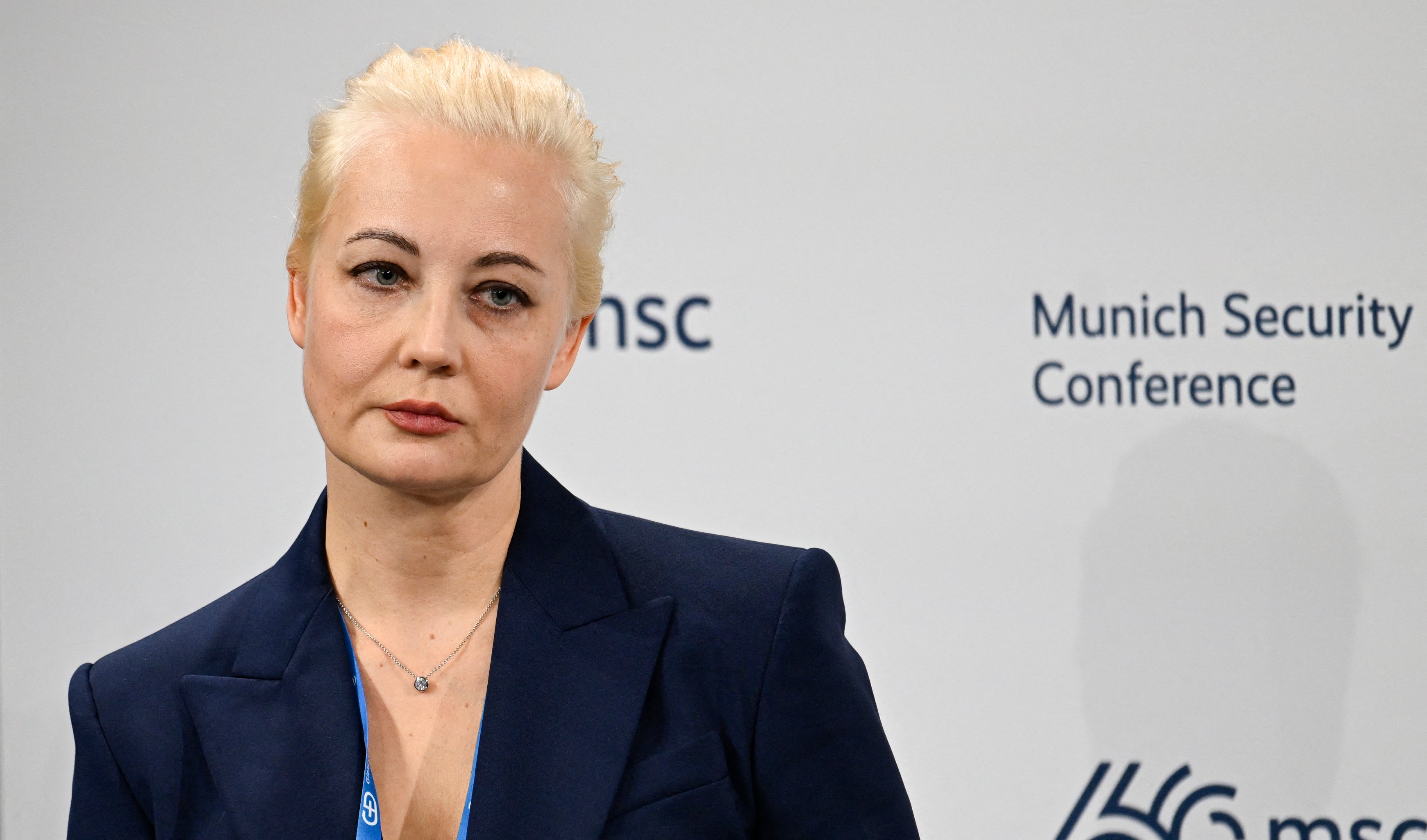
“But I understand this goes way beyond our fears and our lives. It’s not just our family. There are tens of thousands of Russians who feel the same way. There are thousands who ended up behind bars for openly saying no.
“Each and every one of those families is going through the same pain and misery that I am feeling.
“So for the sake of them, for the sake of Vladimir, for the sake of my children and for the sake of the future of Russia, I have to do my best.”
Her message was echoed by Yulia Navalnaya in the days after her husband’s death, in a video she posted to her newly created X/Twitter account.
“By killing Alexei, Putin killed half of me, half of my heart and half of my soul,” she said. “But I still have the other half. And it tells me that I have no right to give up.”
Alongside advocating for the release of her husband, Ms Kara-Murza now travels around the world in support of the Ukrainian fight against Putin’s Russia.
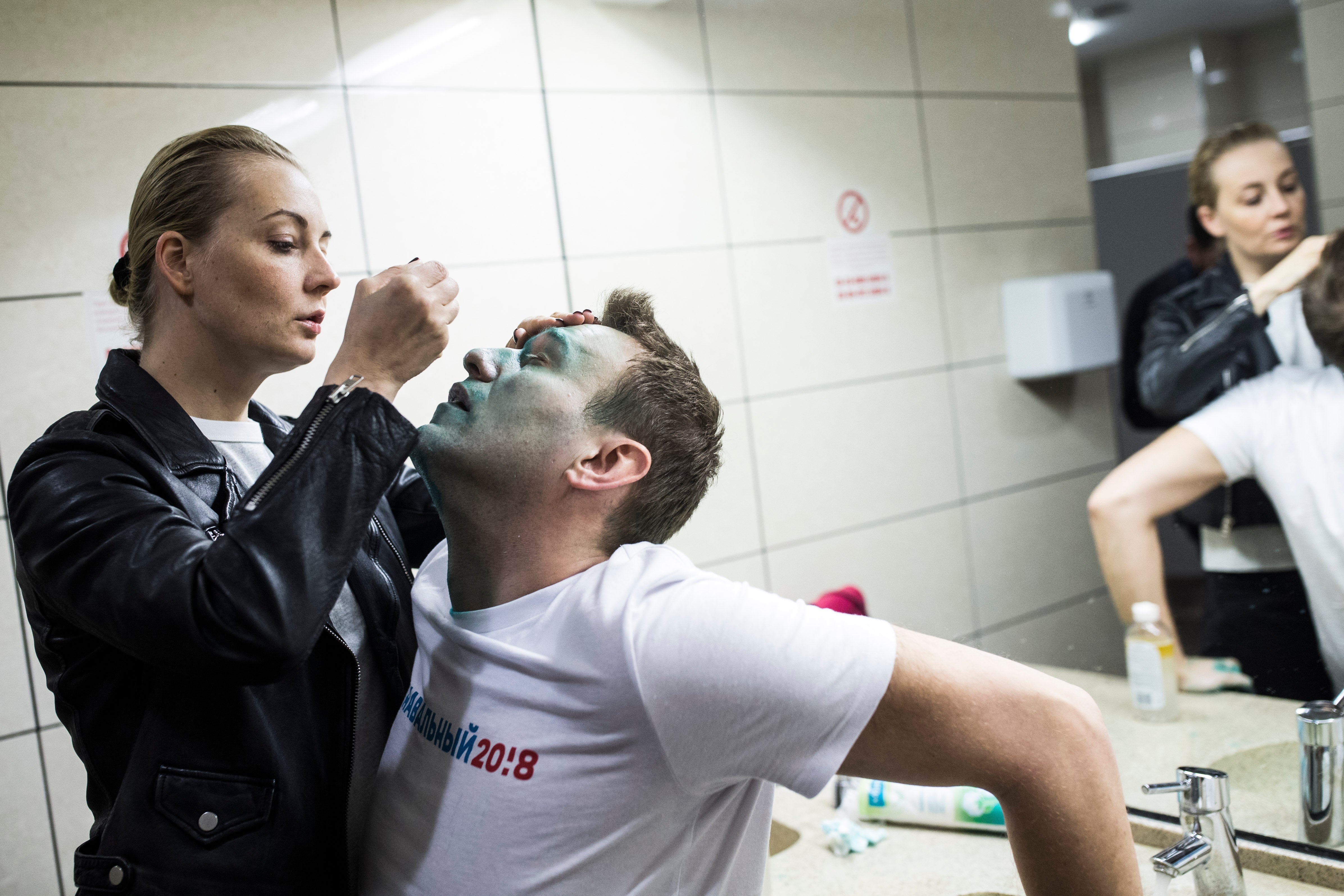
The defeat of Russia in Ukraine, she says, is the only way to weaken Putin.
“Ukraine’s victory on Ukraine’s terms is so crucial,” she said. “Not only because it is morally right for them to be able to defend their future but also because it would send a clear message to the Kremlin that Vladimir Putin will no longer get away with such crimes.”
For Yevgenia Chirikova, 47, a friend of the Navalny family, the war in Ukraine and the repression of dissidents inside Russia has radically changed how she conducts her own activism.
She rose to prominence in Russia as an environmental activist, running a successful campaign in 2010 opposing the construction of a road linking Moscow and St Petersburg through the Khimki forest, before fleeing the country in 2014 after being threatened by Russian authorities.
But when the war in Ukraine broke out, a day she describes with considerable anger, she quickly mobilised her contacts for other means. She also joined the Anti-War Committee.

“We had very good relationships with climatologists and environmentalists in Ukraine,” she said. “But after this war, thanks to this relationship, we found opportunities to support Ukraine NGOs in other fields.”
Her organisation, Activatica, has now helped to fund medical programmes inside Ukraine, including buying vehicles for frontline paramedics, funding initiatives to ensure disabled persons across Ukraine have access to medication, and supporting those injured by Russian bombing. It has also provided a space for independent journalists to counter Russian propaganda and cater to an audience inside Russia.
And it is involved in the military side, offering thousands of consultations to disenfranchised communities in rural Russia on how to avoid conscription into the Russian military.
When Navalny’s death was announced, she declared the most effective way to respond was “to organise real support for the Ukrainian army and for Russians who, at this moment, take part in this war on the side of Ukraine”.
“This is our army,” she said.
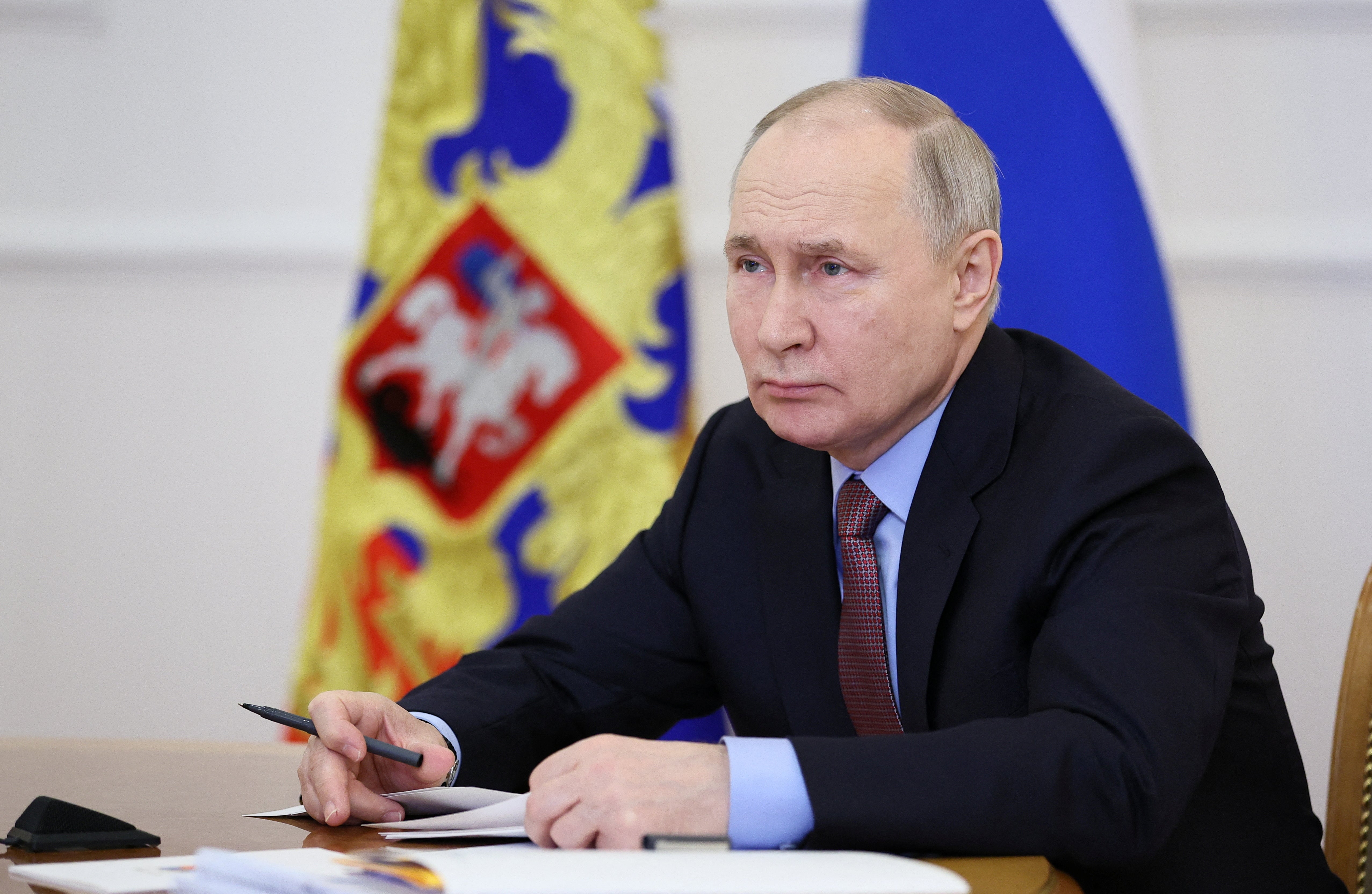
She has since been added by the Kremlin to the list of so-called extremists and terrorists for anti-war activities. As long as Putin is in power, she will never be allowed to return to Russia.
Some dissidents say they have found themselves regarded with suspicion, having fled into Western countries. Natalia Arno, the founder of Free Russia, a pro-democracy group that offers support to the dissident community across the globe, described this problem as “friendly fire”.
She fled Putin’s Russia in 2012 after being given a 48-hour notice by the Kremlin’s security services to leave the country or face 20 years in prison. She had been working as a human rights activist since 2004. She fled to Lithuania, then to Poland, before moving to the US and founding Free Russia just months after Putin ordered the illegal annexation of Crimea and the invasion of eastern Ukraine in 2014.
She knows well the impact Vladimir Putin has on the reputation of Russians across the world.
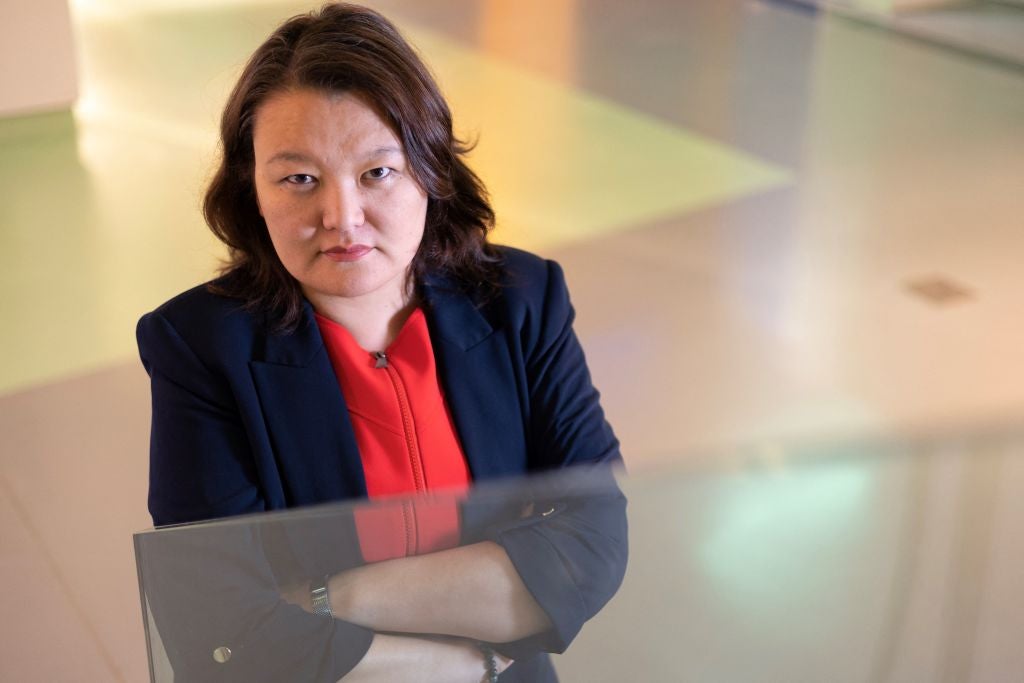
“People were very surprised not to be accepted by some European countries,” she said. “That made them feel like Putin was winning because he had been saying that everyone doesn’t like Russians ... We were saying: Please don’t judge us on that. Judge us on the values of our actions. We are your allies.
“There was a lot of friendly fire. We had to do a lot of advocacy in various embassies, parliaments and Congress.”
Nowhere was that more difficult, she said, than in the Ukrainian capital of Kyiv, where the Free Russia offices open despite the “toxic” state of many things related to Russia in Ukraine in the wake of Putin’s invasion. Ms Arno said they wanted to stay because they knew they could help in ways others could not.
“We are the ones who are capable of locating and defending Ukrainian PoW and civilian hostages held in Russian jails,” she said, by way of example. “No one else can do that.”
The scale of destruction caused by Putin’s full-scale invasion of Ukraine is astronomical. Millions of Ukrainians have been killed, wounded or displaced. Millions more live under Russian occupation.
“There has been so much pain in these past two years,” said Evgenia Kara-Murza, “created by the decisions of one man.”
Join our commenting forum
Join thought-provoking conversations, follow other Independent readers and see their replies
Comments
Bookmark popover
Removed from bookmarks